Earth
Sign up for our newsletter
We summarize the week's scientific breakthroughs every Thursday.
-
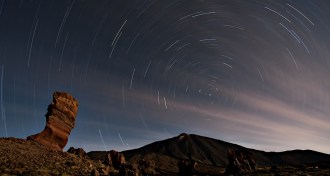 Physics
PhysicsExplanation for G’s imprecision stumbles
A surprising new result seems to suggest that subtle changes in Earth’s rotation rate could account for physicists’ difficulty in measuring Newton’s gravitational constant. But some confusion with dates appears to derail the finding.
By Andrew Grant -
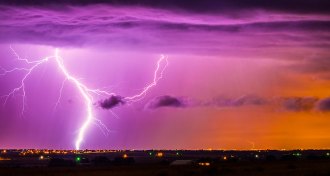 Earth
EarthCosmic rays illuminate lightning
Radio waves emitted by particles zipping through thunderstorms allow physicists to probe thunderclouds and, perhaps eventually, learn what triggers lightning strikes.
By Andrew Grant -
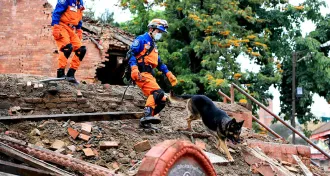 Earth
EarthStronger quakes could strike other segments of Nepal fault
The magnitude 7.8 earthquake that struck Nepal’s capital city could be overshadowed by larger future earthquakes along the Himalayas, scientists say.
-
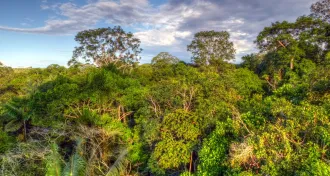 Ecosystems
EcosystemsJust 1 percent of Amazon’s trees hold half of its carbon
Roughly 1 percent of tree species in the Amazon rainforest account for half of the jungle’s carbon storage.
-
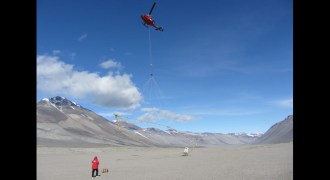 Earth
EarthHidden water found deep beneath Antarctica desert valley
New imaging reveals liquid water network beneath Antarctica’s McMurdo Dry Valleys that could support microbial life.
-
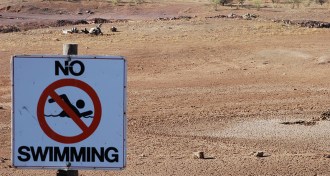 Climate
ClimateWarming’s role in extreme weather quantified
Scientists calculate how much to blame human-driven climate change for extreme high temperatures and heavy rainfall.
By Beth Mole -
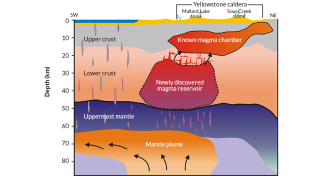 Earth
EarthMassive magma pool found deep below Yellowstone
Earthquake waves reveal massive magma reservoir deep inside the Yellowstone supervolcano.
-
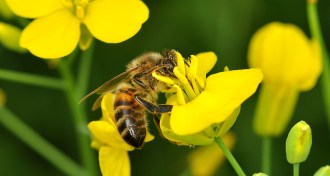 Animals
AnimalsBees may like neonicotinoids, but some may be harmed
Two high-profile tests raise worries that bees can’t avoid neonicotinoid pesticides and that wild species are at special risk.
By Susan Milius -
 Space
SpaceDriving Curiosity to discovery
Discovery is driven by curiosity, on Mars and closer to home.
By Eva Emerson -

-
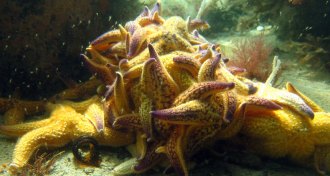 Animals
AnimalsGrowth of mining on land may promote invasions at sea
Ballast water taken in to keep ships stable could, when discharged elsewhere, release species that become invasive in their new homes.
-
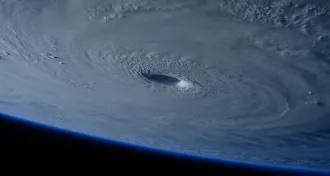 Climate
ClimateMonster storm dominates view from space station
A stunning photograph from the International Space Station captures the size and power of Typhoon Maysak, which clamored through the Western Pacific.